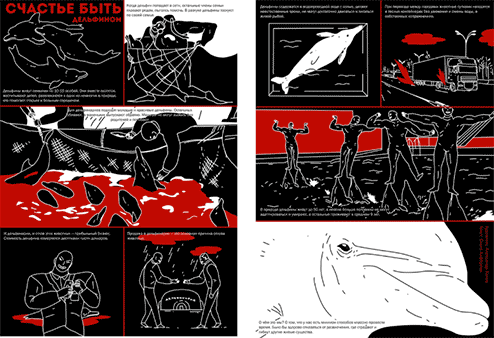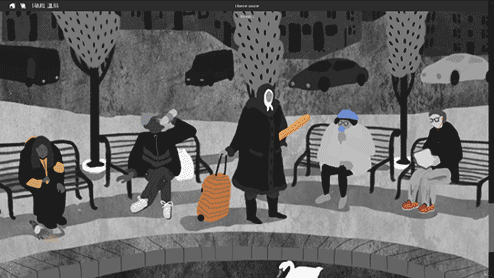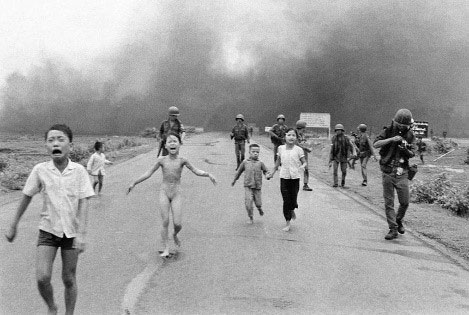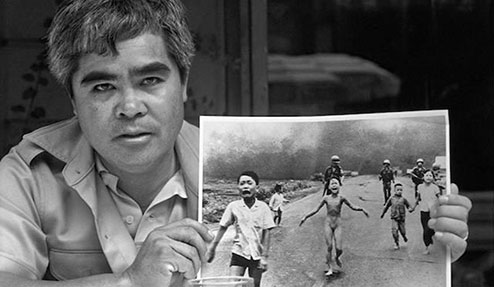Как медиа спасают и разрушают жизни
Лекция для студентов института социальных наук
(Нидерланды, Университет прикладных наук Ханзе, март 2020)
Медиа — один из важнейших социальных институтов. Журналисты и блогеры противостоят коррупции и беззаконию, домашнему насилию, борются с проблемами меньшинств и спасают китов. Журналисты в России не только пишут о сложных проблемах, но и пытаются непосредственно помочь героям своих историй. Но медиа могут не только спасать, но и разрушать жизни. Герои медиатекстов часто надеются на поддержку и одобрение общественности, но после публикации сталкиваются с преследованием, остракизмом, флеймингом, троллингом.
Ключевые слова: медиа, журналистика прямого действия, коррупция, беззаконие, домашнее насилие, проблемы меньшинств.
1. Media saves lives
That summer journalist Ivan Golunov was arrested in the center of Moscow. The police planted drugs to him. The media community with one voice made a stand for Ivan. Journalists were convinced that the Golunov case was falsification. His arrest was a revenge for his famous investigations of corruption.
The three most powerful newspapers were released with the same covers. On every cover, there was only one headline: "WE AM IVAN GOLUNOV." It is not a grammar mistake: WE AM not we are. It had a special meaning. Social networks boiled over.
Ivan was saved. He was released five days later under pressure from the public opinion. The president Putin ordered to kick out two police generals.
Media in Russia and in the world is the most important social institution. The media fight with domestic violence, minority issues, put out forest fires and save whales.
For example, all the last year, journalists closely watched the situation around the “whale prison” in Eastern Russia. Several companies caught eleven killer whales and ninety belugas in the Okhotsk Sea. Poachers wanted to sell animals to Chinese aquariums. In this semi-legal market, they are ready to pay $ 7 million for every killer whale and $ 15 thousand for one beluga whale. The whales were kept in tight swimming pools for almost two years. They were sick and some of them died.
Activists proved that the animals were caught illegally. The whales were saved. But that would not have been possible without constant media attention.
While all people were watching the situation around “whale prison”, my brother being an eco-friendly person made a comic strip about dolphinariums. He published it in a local magazine. He is a dentist. Not professional painter.

Pic. 1. Comics about the water parks by my brother Vladislav Tyazhlov in OnONas magazine (2019, № 20).
Two more examples how media influence people’s life.
In January, oncologist surgeon Andrei Pavlenko died of stomach cancer. As a doctor, he saved thousands of lives. For two years, he made a video blog about his own fight against cancer. He helped other people to be strong by his personal example. He continued to work in the hospital and opened a charity fund.
Journalists helped Andrei to keep the blog. They were the journalists of the online magazine Such Things. Journalists of this site write about people with addictions, about the homeless, about orphans, about victims of violence, about the poor, about migrants, about people with chronic and incurable diseases, about the elderly. However, they do not just write. Journalists offer readers to help the heroes of stories. They explain how to do it. The magazine cooperates with trusted foundations and public organizations. The magazine has its own fund. You can make a couple of clicks and send money to people who need them. Alternatively, you can set up a charity auto payment — a small amount will be debited from your bank account every month. Such donations are very important for foundations. Regular donations become a solid base that funds can count on.
Website: takiedela.ru/2018/12/terpet-radi-detey
This is the article about Fatima. She is from Chechnya. Her husband illegally took away her children.
The judge did not listen to her. It is important to say that elders play an important role in Chechnya even now. Elders are influential men in Islam regions of Russia. In the court, she was told to turn to elders. The woman Fatima appealed to the elders and wrote to President Putin. It has not produced results because she is a woman. She is a woman in Chechnya.
One of the public organizations helped Fatima. Children were returned after a long and difficult trial. This article is not only described a dramatical story. At the end of the text, we can find a donation form for the Madina project. This organization has helped Fatima and helps other women who are in a similar situation.
You will make a couple of clicks and help women who suffer from lawlessness, and the world will be a little better.
2. Direct action journalism
This is an example of direct action journalism. This concept is becoming popular in the Russian media. The idea of the concept is that the media do not just write about people's problems, but try to make the society pay attention to them and help the heroes directly. This is when journalists move from words to deeds.
Website: takiedela.ru/homeless/en/
However, direct action journalism is not only a great idea. The people are doing amazing things. Let us look at one of their special projects of online magazine Such Things.
This is a project about homeless people “There once lived ... Five stories of real people”. Such projects are best viewed on a computer. You are offered to choose a hero. Let us choose Lily. She is my age. She is 31.

Pic. 2. Main page of the online project about the homeless “There once lived ... Five stories of real people” in online magazine Such Things.
Lily grew up in an orphanage. Then she got married and gave birth to two children. However, it was in other life. Lily does not like to talk about it. The husband beat her. Lily could not stand it and left the house. Lily from childhood was quiet and harmless. Children in an orphanage often beat her, then her husband beat her, and now other homeless people beat her too. Lily met volunteers in the passage of the underground. She helped them. She helped to find homeless people who needed medical help, helped to distribute food to them.
In the street, Lily met the man called Tolik. They were always together. Tolik protected Lily as best as he could. When Tolik was sick, Lily was looking for medicine and food.
In 2006, in Moscow there was a very cold winter. Lily froze and died. Lily died because the police officers kicked her out of the underpass. Not all cops do this.
At the end of every winter, a memorial service for homeless people who died on the street is held in the churches of Moscow. This year, 96 names were read out as a part of this memorial service. Lilya’s name was among them. Nobody knows exactly how many homeless people actually die on the streets every year.
Why did direct action journalism appear today?
The traditional concept of journalism looks cynical. Often, the heroes of publications trust to journalists. People hope that they will be heard and helped. However, no one hears. Moreover, sometimes no one reads. Often the journalist thinks that if he has found a hero and has told an impressive story about him — that is enough. He made his task — talked, photographed, wrote and published the article. It is the end of his responsibilities. No matter what will happen with a hero of the article in future. Maybe the publication only damaged hero’s life. Sometimes the journalist forgets about a hero of the article as a developed resource. He is just waiting for the prize for resonant article.
The traditional concept of journalism is to cover, observe, but not interfere. Perhaps the metaphor of such kind of journalism can be a photo of the British photographer Nick Ut. It is believed that this photo has influenced on public opinion about the war in Vietnam. Naked burned girl running from napalm is in the photo. There are photographers around her. They are trying to find a good angle to take a photo. No one is trying to help her. Of course, these extra details were сut during the publication.

Pic. 3.1. The Terror of War by Nick Ut

Pic. 3.2. Nick Ut demonstrates a cropped version of the photo
The Terror of War by Nick Ut.
Why is it not enough just to tell an important story?
Sometimes important stories simply do not go to the audience. We live in a world of memes and pretty cats. We do not want to look at the pain of other people.
In addition, some important topics are covered in the media poorly.
The low coverage of some problems in the Russian media is associated with restrictions in laws. For example, Russian law bans homosexuality promotion and puts restrictions on coverage of drugs and suicide problems. It is impossible to publish content that hurt the feelings of religious people. Moreover, it is impossible to publish a text that can make ethnic conflicts.
The law about punishment for abusing the authority in media was passed in Russia last (2019) year. For example, there are no «bad» jokes about the president Putin on television. There are no Russian cartoons like South Park or Family Guy.
Many media, especially in the regions, completely refuse to cover the problems of homosexuality community. Editors do not take up texts, which they understand as drug-positive.
The liberal opposition sees in these laws signs of a totalitarian regime. However, I should say that many of these laws are logical in the Russian reality.
Therefore, I must say that Russian society is extremely negative about homosexuality people. According to the statistics of 2010 74% of Russians think that homosexuality people are immoral or psychically disabled. Only 15% responders answered that homosexuality is equal to traditional sexual orientation. 39 % believe that homosexuality people should be forcibly treated or isolated from society. 4 % believe that people with non-traditional sexual orientation should be liquidated. 84 % are against the same-sex marriages in our country (Газета.ru, 2010).
Recent statistical studies show an increase in the tolerance of Russians towards the homosexual community. The research of 2019 shows that 47% of Russians are for equal rights for homosexual people and other citizens. But experts believe that the opinion of Russians highly depends on the intensity of propaganda of homophobia in the media (Дергачев, 2019).
If we talk about the LGBT topic in the Russian media, here the media follow this formula: you cannot say that being gay is good. For example, you cannot write about LGBT parties.
However, it does not mean that Russians are cruel and bad people. I want to explain you this statistic.
Here is some history of legislative repression of the homosexual community in Russia. Legal restrictions in Russia appeared later than in Europe. The first official restriction of sodomy appeared in the 18th century. Peter the first banned sodomy in the army after travelling to England and the Netherlands.
In the 19th century, an official ban appeared for all men, but without punishment. Society treated homosexuality not as negative as it did in Europe. Serious problems began after the October Revolution (1917). Bolshevists destroyed the infrastructure of the homosexual community. They closed baths, hotels, restaurants, salons. Homosexuality was used as an instrument of propaganda, information war. The same is happening now. Homophobia is an instrument of political rhetoric in modern Russia. Two weeks ago, the president Putin said: “As long as I am the president, we will not have a parent number one and parent number two. There will be a father and a mother” (Российская газета, 2020). Here are the results.
On Valentine's Day, H&M posted on Instagram a photo of two kissing girls. Many users from Russia were unhappy with this post. They blamed H&M in promoting of homosexual relationships.
For example:
“Vile. H&M a shame. Promote this in Europe.”
“Can you advertise clothes without such kind of propaganda?”
However, I have to say that there were negative comments in English, German, Spanish and other languages.
As for drug addicts, 19 percent of Russians believe that they should be liquidated, and another 36 percent think that they should be isolated from society.
In this situation, the existence of relevant laws seems enough natural. It turns out ambivalent situation. On the one hand, these laws are a natural reflection of the majority opinion, and on the other hand, these laws block comprehensive coverage of the problems. These laws do not allow the media to change public opinion and create a public debate.
In this situation, it sometimes seems that the coverage of these topics by independent mass media becomes not only a reflection of their social position and a desire to inform and make public opinion. Nevertheless, it is also a kind of political protest.
For example, at the end of 2018, an interview with a young woman addicted to heroin Teo appeared in the internet-magazine that is popular in a creative community. In several days, the supervisory authorities blocked the article. This text was considered as drug-positive not only by supervisory authorities, but also by many journalists. The opinion of the audience was also separated. In this interview, a young woman using heroin talks about her life position and lifestyle. Teo says that a person can take heroin and look good. She tells how she finds and takes heroin and she is not going to give up drugs. She says: “I didn’t degrade; I didn’t get sick of anything. If I exist, then maybe there are other people like me? I am ok, but I have been taking drugs a lot and very long time. ”
The publication of this text is like the action. It was instantly shared on the Internet. It made an intensive discussion. Blocking of this article only added interest to it. Paradox: the article was blocked, but it is good for the magazine. Magazine got the reputation of the independent one.
However, what about Teo, a young woman addicted to heroin? Teo was arrested. Journalists could predict this effect of the article. Her life is broken.
3. Media destroys lives
Media can not only save, but also destroy lives.
This is my friend Olga Alferova. Last year I talked about Olga Alferova’s project. That is called “Enough For Me” (Tyazhlov, 2019). This is a project about domestic violence. Two years ago in Russia a law about decriminalizing domestic violence was passed. Olga was one of the first journalists to make a large media project about this problem, about decriminalizing domestic violence. I am grateful to her for the opportunity to design this project. Last autumn that law was revised under public pressure. It is the victory of Russian journalism.
Website: s_menya_hvatit.tilda.ws/photo
I will show you only the part of the project. The photographs showed objects that were used by men to beat up women: a leg from a chair, a knife, a saucepan, an ax, a door handle. Next to the photos, there are texts from the trial decision. For example. “Using a metal saucepan as a weapon, he beat her face.” Found guilty. Punishment — compulsory work (250 hours).
However, this year Olga left journalism. She left the editorial office, in which she worked for most of her career. There were various reasons. I want to tell you about a situation that perhaps has become one of the reasons for this decision.
Last May, Olga opened a photo exhibition in the city park of Belgorod. The photo exhibition was about mothers who raise children with mental disabilities (Website: spasibo31.ru). Olga described their personal life stories, and Natalya Malykhina took photographs. The aim of the project was to attract attention to the work of the local public organization “Blue Bird”. Parents of children with mental disabilities can find support in this organization.
When I came to the opening of this photo exhibition, I found my colleague Olga in a terribly depressed condition. She could not say a word. I know Olga as a strong person who is difficult to unbalance. However, at that moment she simply could not talk. Even more, she couldn’t give a speech to the public.
She told me why she was upset. A few days before this event she published an article about parents of fourth form students. The parents decided not to organize the party “Graduation from primary school”. This is a new expensive tradition. Parents buy for 10-year-old children expensive clothes, gifts, do them hairstyles and makeup, pay photographers, rent a restaurant.
Heroes of this article decided to break this tradition. Their idea was to give the saved money to the fund for helping lonely old people. Great idea, isn't it? Olga wrote the article about this.
This story appeared in social network. Then it began. The citizens began to put offensive comments. Like these ones:
“This is nonsense. They have robbed children!”;
“Only crazy people will support such stupid idea”;
“It would be better if they bought food for a dog shelter. Anyway, someone will steal this money”.
There were hundreds of such comments. Many of them were very rude and evil. A few approving comments were lost in them.
Of course, this information quickly reached the parents, class teacher and school management. Heroes of article hoped for support, approval, that other people would follow their example. Nevertheless, they met huge unexpected anger. A scandal started at school at the administrative level. Other journalists began to call the class teacher and parents. The initiators panicked and began to abandon their involvement. They began to say that the journalist Olga misunderstood them.
On the opening day of that exhibition, the class teacher called Olga and started screaming at her. One of the bloggers indirectly accused Olga of incompetence.
The good and useful idea was broken. Olga is not a journalist now. She is a writer. Media is a very aggressive place.
Heroes of media stories often face persecution, ostracism, flaming, trolling. Often such stories have a tragic ending.
Can we prevent it?
Why is this happening?
Can journalists protect their heroes?
There are no definite answers to these questions, but it is important to search for them.
__________________
Список литературы:
«Левада»: 40% россиян настаивают на принудительном лечении геев. Газета.ru—2010. https://www.gazeta.ru/news/lenta/2010/08/06/n_1530567.shtml
Дергачев В. Почти половина россиян выступила за равные права для геев. РБК — 2019. https://www.rbc.ru/politics/09/03/2020/5e621bda9a7947399d08ecec
Мисливская Г. Путин: Пока я президент, у нас не будет «родителя номер один» и «родителя номер два». Российская газета — 2020. —https://rg.ru/2020/02/13/putin-poka-ia-prezident-u-nas-ne-budet-roditelia-nomer-odin-i-roditelia-nomer-dva.html
Tyazhlov Yan I., Tyazhlova T. I. What prevents journalism from being journalism. Lecture for students of Social Studies School (Hanze University of Applied Sciences, Netherlands, March 2019)// Современный дискурс-анализ. - 1 (22). — 2019. – С. 13-25. Режим доступа: http://discourseanalysis.org/ada22/st240.shtml
__________________
HOW MEDIA SAVES AND DESTROYS LIVES
Lecture for students of Social Studies School (Hanze University of Applied Sciences, Netherlands, March 2020)
Media is one of the most important social institutions. Journalists and bloggers fight corruption and lawlessness, domestic violence, minority issues and save whales. Journalists in Russia not only write about complex issues, but they also try to help the heroes of their stories directly. But media can not only save, but also destroy lives. Heroes of media texts often rely on the support and approval of the public, but after publication they are faced with persecution, ostracism, flaming, trolling.
Keywords: media, direct action journalism, corruption, lawlessness, domestic violence, minority issues.


